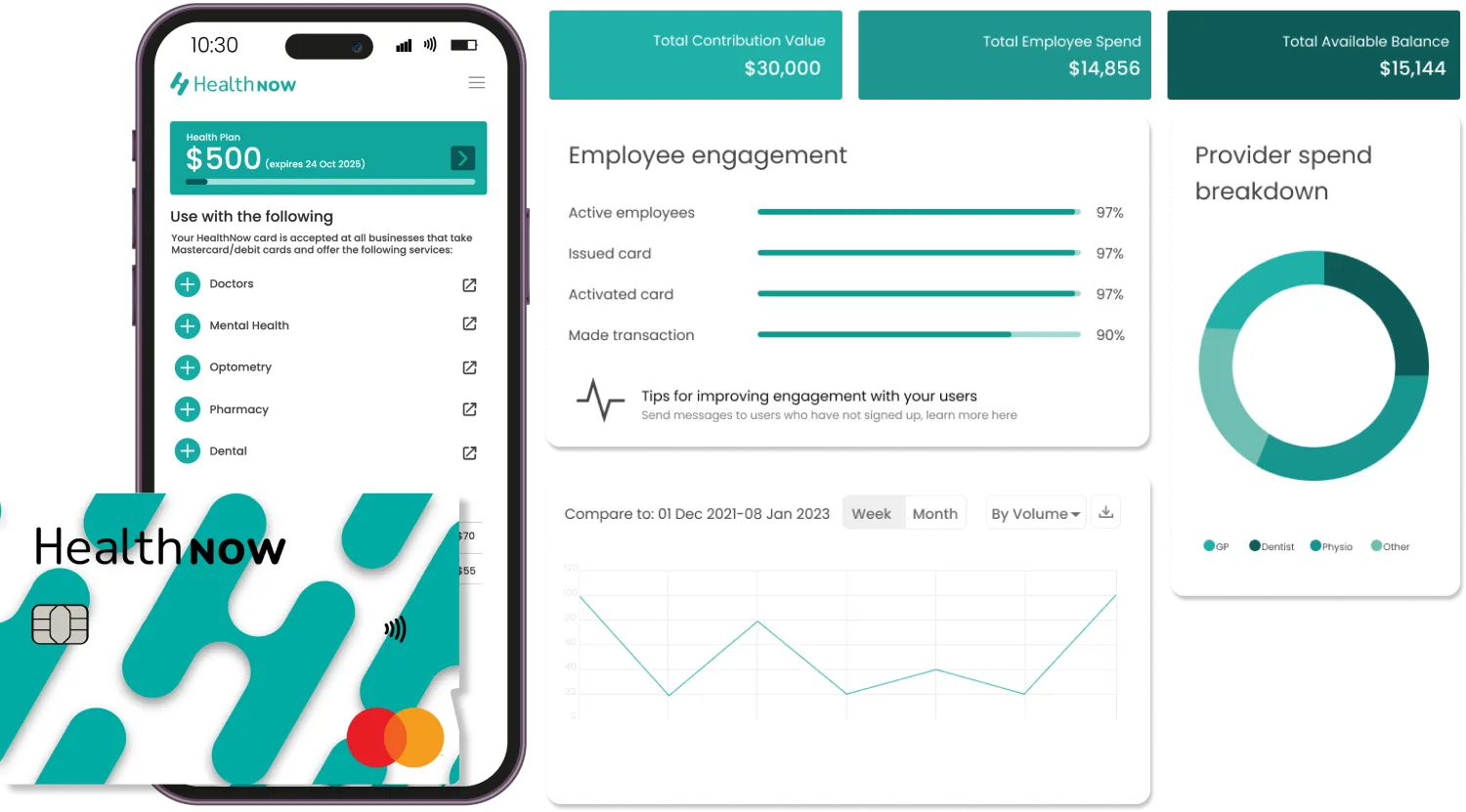In an era of financial uncertainties and rising living costs, employees are grappling with challenging decisions concerning their well-being. The combination of inflation and increasing expenses has a profound impact on people’s lives, influencing not just their financial choices but also their health-related decisions. In recent times, inflation has surged to 7.7% in New Zealand, and with approximately one-third of households holding mortgages on their primary residences, the financial burden on employees has intensified. These financial pressures come at a time when the average salary has only increased by 4.5% in the past year, leaving many employees feeling that their earnings are inadequate in the current economy. As such, it’s no surprise that employees are seeking new employment opportunities that are more attractive financially – whether that’s in the form of a salary increase, greater benefits, or both.
The Cost Of Daily Life For Employees
The rising cost of living has touched every aspect of daily life for Kiwi households, from soaring grocery prices (up 12.5%) to skyrocketing fruit and vegetable costs (up 21%). Medical expenses, including essential health needs, have seen a steep hike of 9-11%, while other essentials like rent (up 5.4%), interest payments (up 38%), and childcare expenses have surged by over 10%. In such circumstances, it’s hardly surprising that a striking 93% of respondents express their greatest concern as the rising cost of living.
The Crisis of Neglected Healthcare
While financial hardships are profoundly affecting the wallets of employees, it’s not just their financial well-being at stake. A recent survey reveals that one in three New Zealanders is forced to go without medical care when unwell due to financial constraints. Alarming statistics show that 46% of New Zealanders without health insurance delay seeking medical help because of the financial burden and the struggle to secure appointments.
To make ends meet, many households have cut down on discretionary spending, including wellness and healthcare expenditures. This shift towards financial austerity has led to over 50% of New Zealand workers experiencing adverse mental health effects due to the inflated cost of living. Additionally, close to half of the employees report that financial stress adversely affects their physical health, with a third stating that their work productivity is compromised.
Delaying healthcare, whether mental or physical, has a wide range of significant repercussions. Some of these include:
- Worsening or deteriorating health conditions. For instance, someone with high blood pressure who delays check-ups and medication adjustments may be at greater risk of a stroke or heart attack.
- Postponing healthcare often means that when individuals finally seek treatment, their conditions have progressed to more advanced stages. This can result in higher medical expenses. For example, a routine dental check-up could detect and address cavities, but if postponed, it might lead to the need for a costly root canal procedure. According to the Health Funds Association of New Zealand, delayed treatments have led to increased costs for both individuals and insurers.
- The stress and anxiety of neglecting healthcare needs can have a severe impact on mental health. The ongoing worries about health issues can lead to conditions like depression and anxiety. For example, someone who has a lump but avoids seeking medical advice due to fear or financial constraints may experience heightened anxiety.
- When a family member postpones healthcare, it can put a strain on the entire family. For instance, a parent with untreated chronic pain may not be able to engage fully with their children or contribute to household responsibilities, impacting the entire family’s well-being. The burden of caregiving can also affect family dynamics.
- Employees who delay healthcare may experience reduced productivity due to health issues. For example, an employee with untreated back pain may find it challenging to sit at a desk for extended periods, resulting in decreased work output. According to research by the University of Otago, absenteeism and presenteeism, which are often linked to delayed healthcare, can lead to significant productivity losses for businesses.
The Impact of Neglected Healthcare at Work
Neglected healthcare isn’t confined to the home. It has a profound impact on the workplace as well. Employees who delay or neglect healthcare often experience decreased productivity, increased absenteeism, and presenteeism. Chronic health problems, left untreated, can lead to burnout and a cycle of work-related stress.
The consequences of unaddressed health issues at work extend beyond the individual, affecting colleagues and team dynamics. Co-workers may need to shoulder additional responsibilities to compensate for an absent or less productive team member, which can contribute to workplace conflicts and decreased morale.
HealthNow Allows Timely Access To Health Services
In these challenging times, prioritising health and well-being is not just an individual responsibility; it’s a collective necessity. Employers are recognising the importance of fostering a culture of well-being that supports employees in seeking necessary healthcare. Benefits like health insurance, wellness programs, and mental health support have become integral to retaining a healthy and motivated workforce.
One significant solution in this context is HealthNow. It provides annual fund contributions for employees to use exclusively on health and medical services via a card that is accepted anywhere that Mastercard is. These funds carry no excesses, stand-down periods, or annual cost increases. Employees are allocated a set amount of funds by their employer to spend annually on health services as they see fit, ranging from dietetic care to flu vaccinations, dermatologist skin checks, and more – as long as it’s within the approved service categories selected by the employer. This autonomy allows employees to take proactive steps toward their health and well-being, which has significant positive flow-on effects on their workplace and family life, addressing many of the issues discussed above.
HealthNow helps employees proactively manage their health and seek timely medical attention without financial strain. With the ability to access a wide range of health services without upfront costs, employees can address health issues promptly, reducing the potential for worsening conditions and the associated mental and emotional toll on individuals and their families.
For employers, HealthNow is a powerful tool for creating a healthier, more resilient workforce. By providing employees with the means to proactively manage their health, companies can reduce absenteeism, presenteeism, and the associated costs. The mental and emotional well-being of employees improves, contributing to higher morale and productivity.
You can read more about the struggles employees are facing in today’s job market and how HealthNow can work with your organisation to help support your employees’ health and well-being in our 2023 Employer Market Report here.








